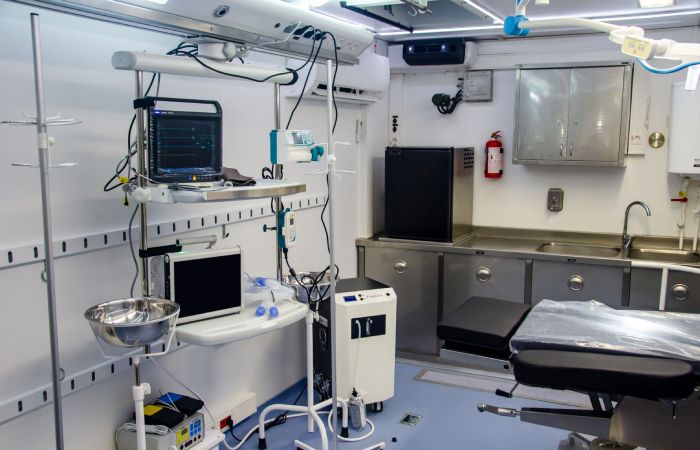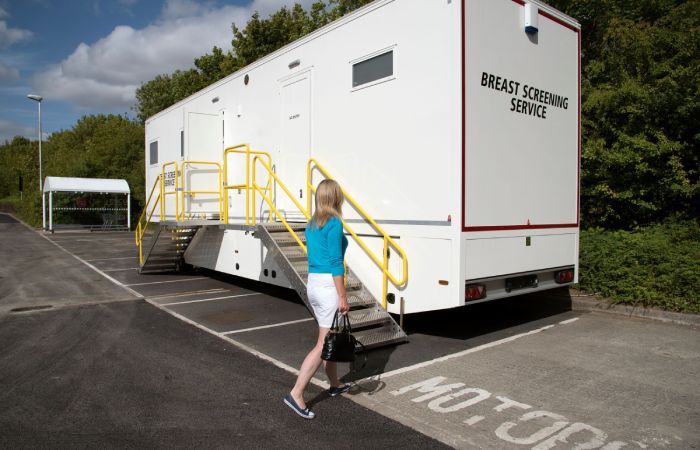The right to medical access is inherent in every individual, wherever they may be. In reality, however, there are various impediments to timely health care service. Transportation costs may be a burden to some, while others may have chronic health conditions causing limited mobility. Low-income groups may also find health services too expensive.
Mobile medical units (MMUs) are often deployed in rural or disaster-hit areas to address these deficiencies. Vans, trucks, or trailers contain medical equipment and skilled professionals ready to provide essential services directly to communities. As such, they’re a godsend to individuals facing geographical or social barriers.
A Closer Look Inside the MMU
Mobile medical vehicles are often referred to as mobile medical clinics. This emphasizes the fact that these units are viewed similarly to brick-and-mortar facilities but with the added advantage of mobility.
Here are some of the common items you might find inside:
Examination essentials
Mobile units have examination tables, medical chairs, stethoscopes, otoscopes, and ophthalmoscopes for ear and eye examinations, thermometers, blood pressure monitors, and weighing scales.
Diagnostic tools
Point-of-care testing equipment, including those for blood sugar, cholesterol, and electrocardiogram (ECG) machines. Some advanced units have portable X-ray or ultrasound machines.
Treatment supplies
Basic medications, wound care supplies, nebulizers for respiratory issues, and other tools are staples. The equipment required depends on the specialized services offered by the mobile medical vehicle.
The good thing about mobile units is that they can be customized. For instance, a medical trailer often used in emergency response can be equipped with self-contained systems that don’t require power or fuel. These units can also be deployed rapidly to deliver urgent care effectively, even in the most challenging settings.

A Spectrum of Care at Your Doorstep
Mobile medical vehicles can be deployed to provide a wide range of services, depending on the specific needs of the community they serve. These may include preventive check-ups, chronic disease management, and other specialty care services.
Primary Care
Most medical facilities wheels have service exam rooms, where routine check-ups, vaccinations, prescriptions, and basic health education can be performed. Think of it as your friendly neighborhood doctor, conveniently parked around the corner.
Women’s Health Services
Prenatal care, screenings, and family planning services empower women to take charge of their health, creating a ripple effect on the well-being of entire families. Some mobile units offer diagnostic services, including cervical cancer screening.
Dental Care
From cleanings and fillings to oral hygiene education, mobile medical units ensure healthy smiles reach every corner of the community.
Mental Health Care
MMUs are dismantling the stigma surrounding mental health by offering accessible counseling and support. Other mobile facilities have mental health professionals offering a wide range of care, including behavioral health services.
Emergency Care
In remote areas or during times of crisis, MMUs can be lifesavers, providing urgent care procedures and stabilizing patients before transportation to a hospital becomes possible.
Mobile medical vehicles can be set up in almost any location—community centers, schools, workplaces, homeless encampments—to bridge the gap between patients and much-needed care.
This convenience, in turn, leads to earlier diagnoses, better treatment adherence, and, ultimately, improved health outcomes for underserved populations.
The Power of Community Outreach
Mobile units can reach geographically dispersed populations and cater to specific community needs. However, they go beyond just offering services; they foster trust and build bridges within communities.
Community Education
Mobile medical unit staff, especially community health nurses, often double up as health educators, dispelling myths and promoting healthy habits. This empowers individuals to take control of their well-being.
Building Trust
Seeing familiar faces and receiving care in a comfortable environment can be a game-changer, especially for those with anxieties about traditional healthcare settings. That’s why medical outreach activities often attract a high number of willing participants.
Reaching Underserved Populations
MMUs can cater to specific needs, targeting services for the elderly, the homeless, or marginalized communities who might otherwise struggle or have limited access to healthcare. Regular deployment in underserved communities may help reduce mortality rates. In 2019, the death rate in rural areas was around 20% higher than in major cities in the US, according to a 2022 research.
Overcoming some challenges is crucial for MMUs to thrive. Sustainable funding models, ensuring a steady stream of qualified healthcare providers, and addressing logistical hurdles like maintaining a reliable inventory of supplies are all necessary for long-term success.
Mobile Units for a Healthier Future
Mobile medical facilities are more than just dressed-up vehicles. They’re symbols of the healthcare system’s constant innovation to meet the needs of every individual. While not a replacement for traditional hospitals, these units can complement efficient medical care, ensuring that basic services are within reach for everyone. As technologies continue to evolve, MMUs are likely to perform more complex procedures and personalized care in the future. They’re a constant reminder that health shouldn’t be static but always on the move.

